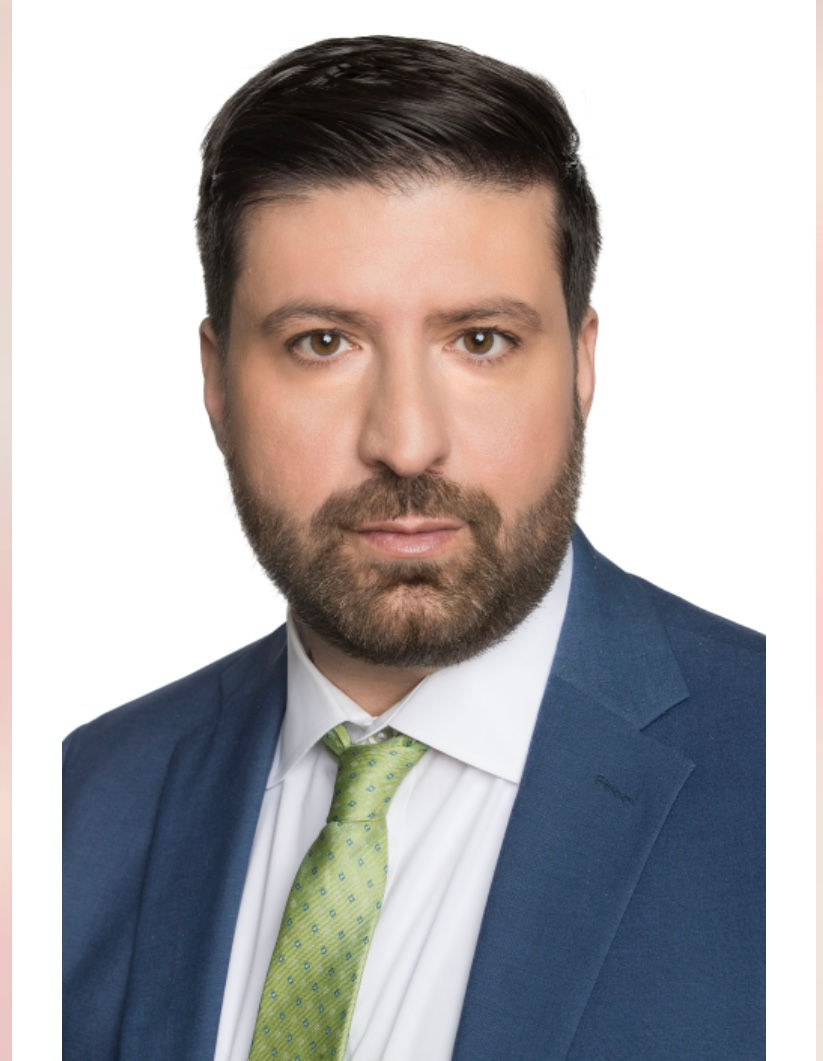Exclusive Interview "David Rabadi"
- Aug 17, 2020
- 4 min read
David Rabadi is a mental health and LGBTQ advocate. He devotes his time speaking to people about these issues and inspiring them to live their lives to the fullest despite the challenges they encounter. He is the first Jordanian to come out publicly in Yonkers, NY.
David is committed to fighting the stigma towards mental health. To address this, he has visited several hospitals and organizations and shared his story on behalf of the National Alliance on Mental Illness. His hope is to enlighten and teach others why they should not treat people with mental health issues differently. Additionally, he speaks to encourage LGBTQ members to live an authentic life by supporting them in accepting and embracing their identity.
His first book, How I Lost My Mind and Found Myself, will be available on Amazon soon. In this memoir he candidly tells of how living a closeted life in a Middle Eastern culture is brutal-and potentially deadly. He powerfully states, “The sentence for being gay and Arab is death - even when the sentence is self-inflicted.”
Tell us about your background and how it led to writing this book.
I have my BA in theatre and mass communication. I was given the opportunity to write for an online magazine called Splash World Wide about 15 years ago. My first Q&A was with the world renowned photographer Nigel Barker. Before that, I would write poetry. I never thought I would embark to become a journalist but here we are 15 years later and l love it. I conduct Q&A’s with people in fashion and entertainment. I share their journey and message with the world.
You grew up in a very conservative culture and religion. How did this impact your sense of self?
The way I was impacted when growing up with a conservative culture and religion is I learned to suppress my feelings, thoughts and actions. I lived in a lot of fear most of my teenage and young adult life. I was scared to be disowned, even killed, if I told my family I was gay. The flip side of living a suppressed life, I learned to become empathetic, sympathetic and non-judgmental. I am very sensitive to how others are treated or may have suffered the same way I have.
You say there is a stigma against mental health - how would you hope to change that?
I hope to change the stigma of mental illness by sharing my story. I speak for NAMI which is the National Alliance for Mental Illness. I am a part of their program “in our own voice,” where I go to hospitals, universities and different organizations and share my journey in what it’s like to live with Bipolar disorder.
Share with us a bit of your journey through the writing process, did you find it especially difficult to write with such honesty and openness?
When I decided to write my memoir How I Lost My Mind and Found Myself it was very difficult in the beginning. I had to deal with a lot of emotions and trauma I have endured. I had to become comfortable with sharing very private details of my life. It took me years to finish the book. I am very proud of the end product.
Tell us about your advocate work in the LGBTQ community.
There is a center in White Plains, NY called the LOFT. I volunteer my time in getting events ready such as Gay Pride in Westchester. I talk to the youth about self-love and self-acceptance. I also include a part of my speech about being a gay Arab in my presentation for NAMI.
What is the main message you want your readers to take from this book?
My message is don’t let fear stop you from living your truth. You are left with a choice, live to be yourself or die as someone else.
What are you working on now and what can we expect from you next?
I am actually very excited on my next project. I will be working on writing a reality TV pilot about myself and a friend living as gay men in the city. It will show our journey in looking for love and conquering the goals we set for ourselves professionally and personally.
For more information, visit: https://davidrabadi.com/
Living a closet life in a Middle Eastern culture is brutal-and potentially deadly. Add to the mix mental illness and your odds of your survival drop to near zero. How I Lost My Mind and Found Myself is the true story of how one man lived to tell the tale.
Gay Arab David Rabadi had been taught from a very young age that there are no genies and no gay Arabs. But while David might accept the fact that genies might not exist, he knew from a young age there was at least one gay Arab and it was, in fact, him.
The fear of losing the love and respect of his family kept David in the closet for more than twenty years, but living with undiagnosed mental illness kept him prisoner in his own head for what seemed an eternity. How I Lost My Mind and Found Myself is a touching, sometimes funny story of David's struggles and eventual triumph in overcoming not one but two stigmas still judged, misjudged, and misunderstood in today's society.
Told with poignant honesty, David shares his inspirational journey from a fresh perspective and gives the reader a rare view of what it means to be living as an openly gay Arab and coping with mental illness.


